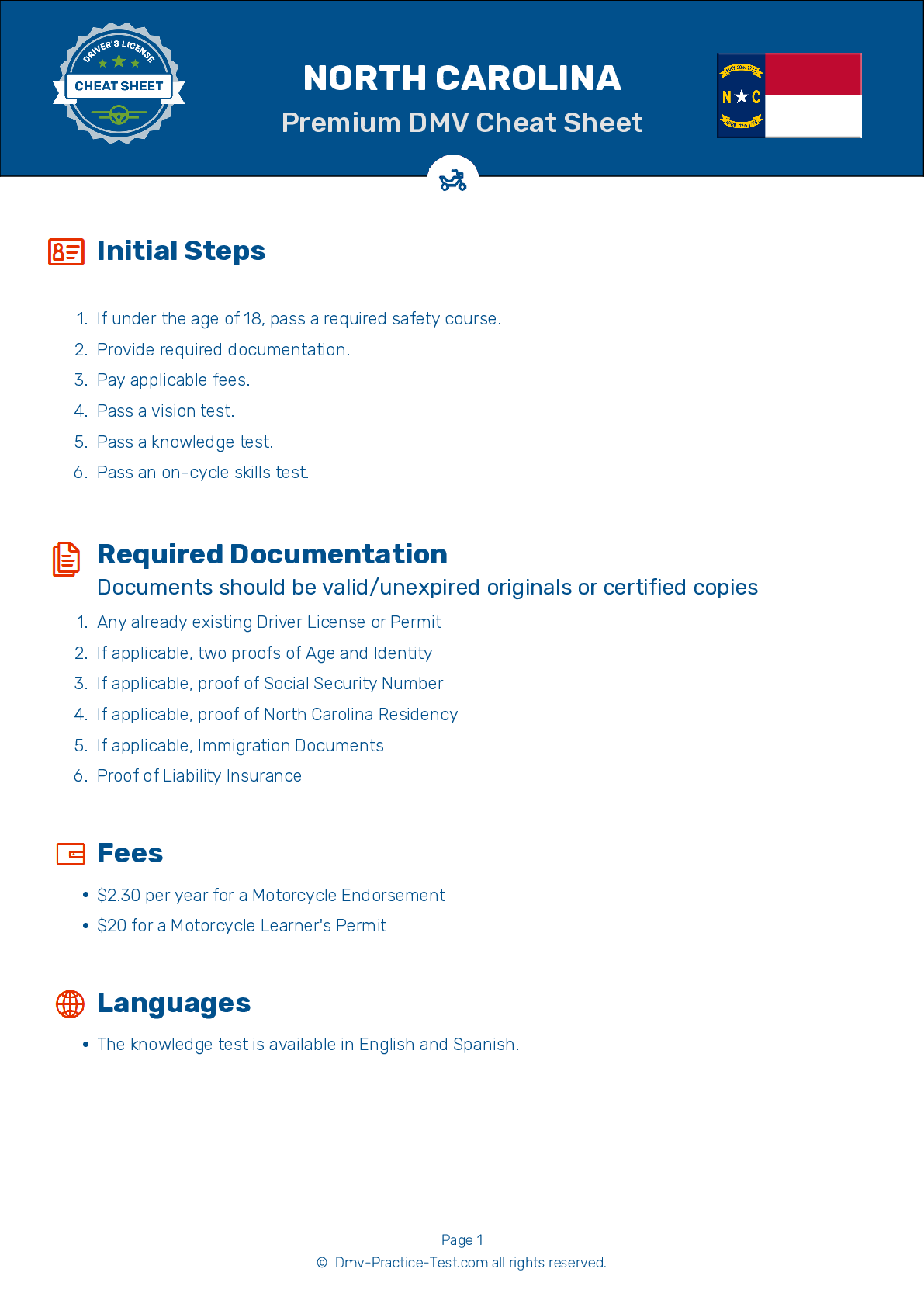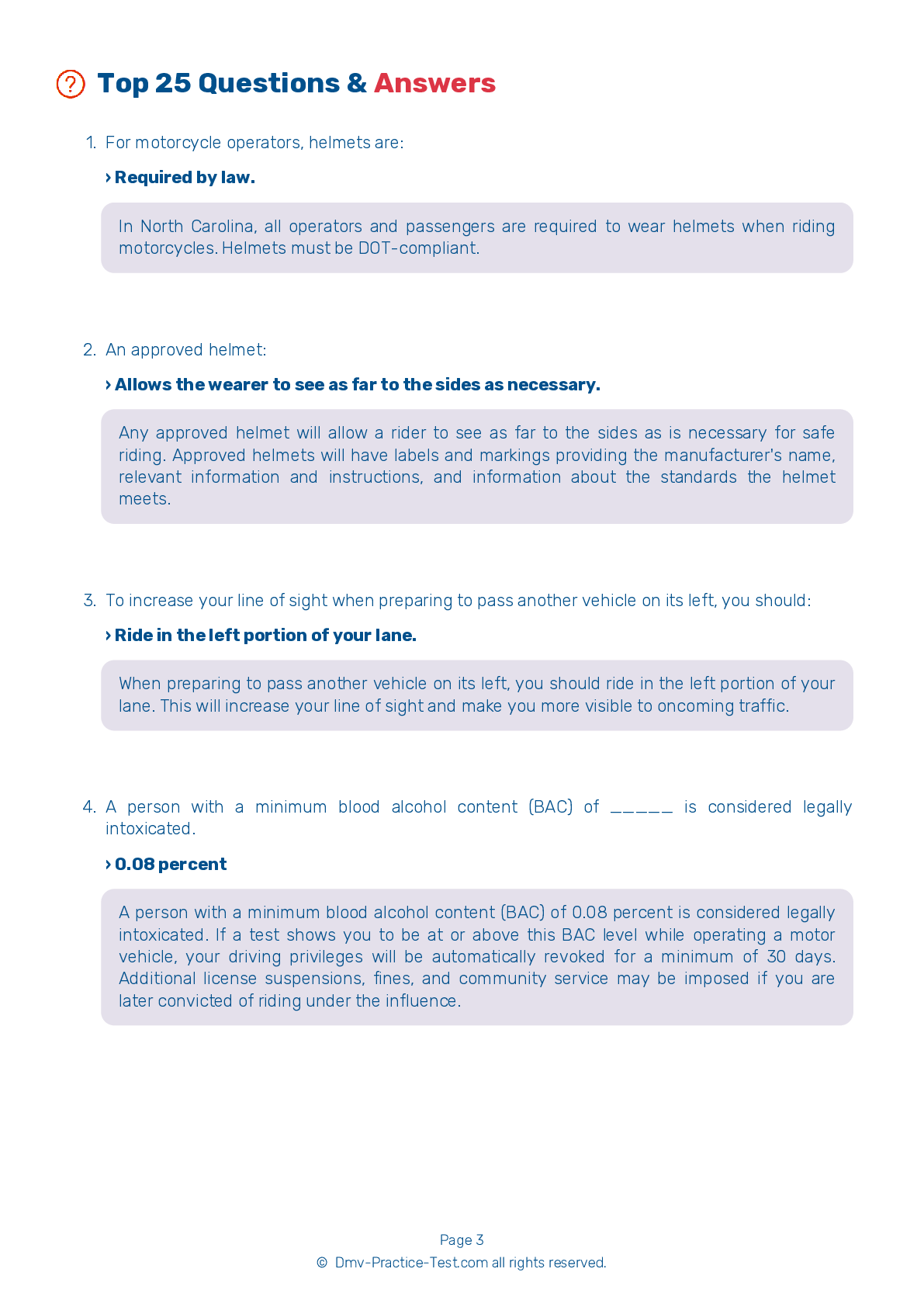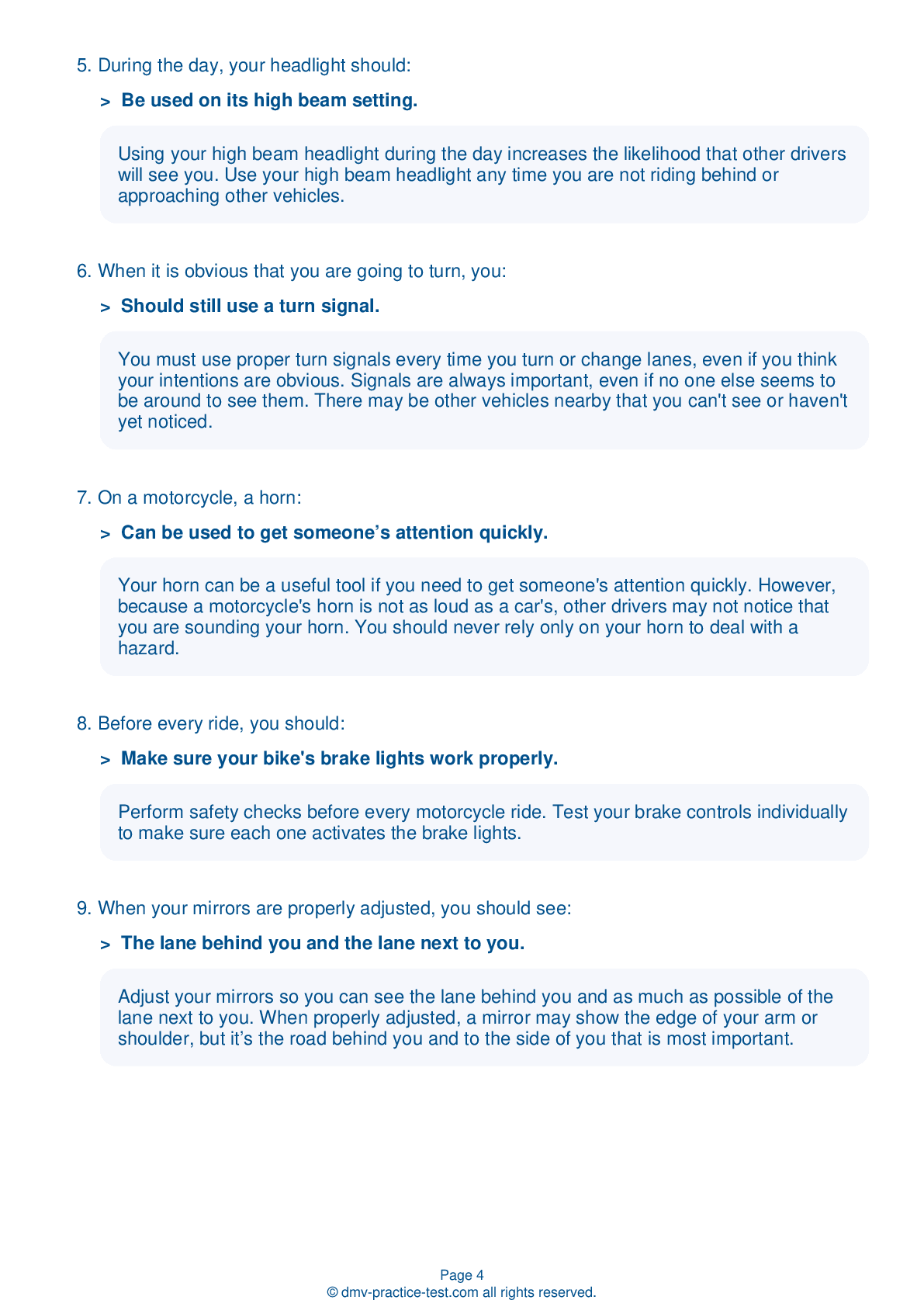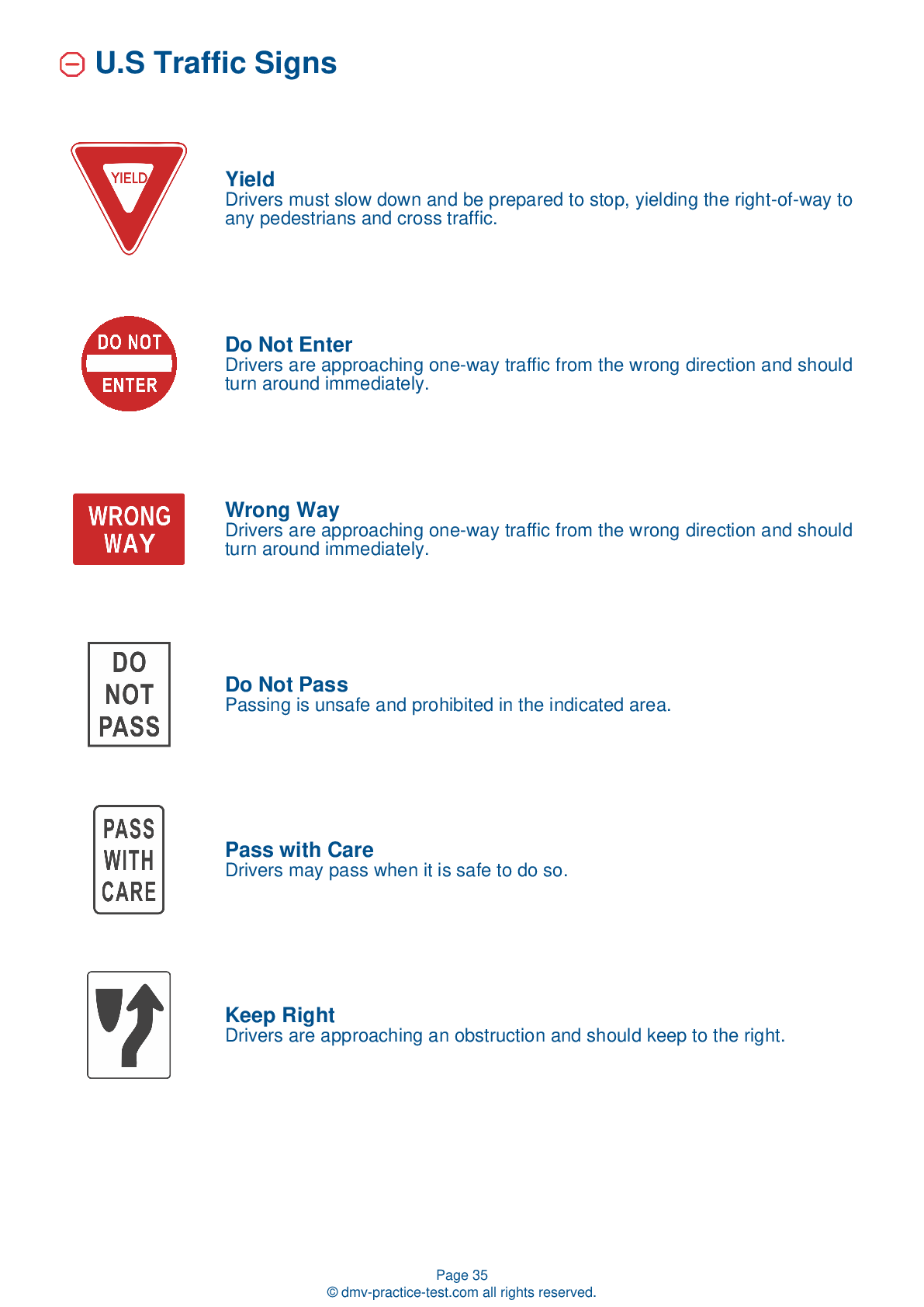Motorcycle Test | License NC 2026 | FREE Online Practice! #11 Page 3 of 5
Take this FREE motorcycle test (license in NC 2026) to check your knowledge of the road rules. To improve your results, download a motorcycle handbook online, study theory, and practice for free on our website. Still worried about how to get a motorcycle license in North Carolina in 2026? Check our website for more sample tests, train as much as possible, and boost your grades!
11 . When being passed by another vehicle, motorcyclists should be alert to:
When being passed, motorcyclists should be careful not to be hit by any part of the passing vehicle, including its mirrors. In addition to the vehicle itself, motorcyclists should also be aware of wind gusts coming from the passing vehicle and potential objects being thrown by a passenger in the vehicle who may not be paying attention to the road.
12 . Before starting a turn, a motorcycle rider should change gears to:
It is best to change gears before starting a turn. Shifting gears while in the turn can cause a sudden change in power to the rear wheel, causing a skid. If you must change gears while in a turn, change gears smoothly to best prevent skidding.
13 . When being followed too closely by another vehicle, you should:
The best way to deal with a tailgater is to get them ahead of you. If you can do so safely, change lanes and let them pass. Speeding up may only increase the danger by encouraging them to continue tailgating you at a higher speed.
14 . This sign means:
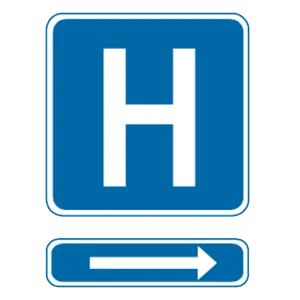
This sign indicates that hospital emergency services are located to the right.
15 . When it is obvious that you are going to turn, you:
You must use proper turn signals every time you turn or change lanes, even if you think your intentions are obvious. Signals are always important, even if no one else seems to be around to see them. There may be other vehicles nearby that you can't see or haven't yet noticed.
See the exact questions that will be on the 2026 North Carolina DMV exam.
99.2% of people who use the cheat sheet pass the FIRST TIME
Jeneen was tired of paying $5/gallon. She got herself a scooter that required the motorcycle license. She studyed the motorcycle test cheat sheet and passed her test the next day!
Christopher tells us how he knew nothing prior to obtaining the motorcycle study guide, and he only got one question wrong because he clicked on the wrong answer by mistake.
